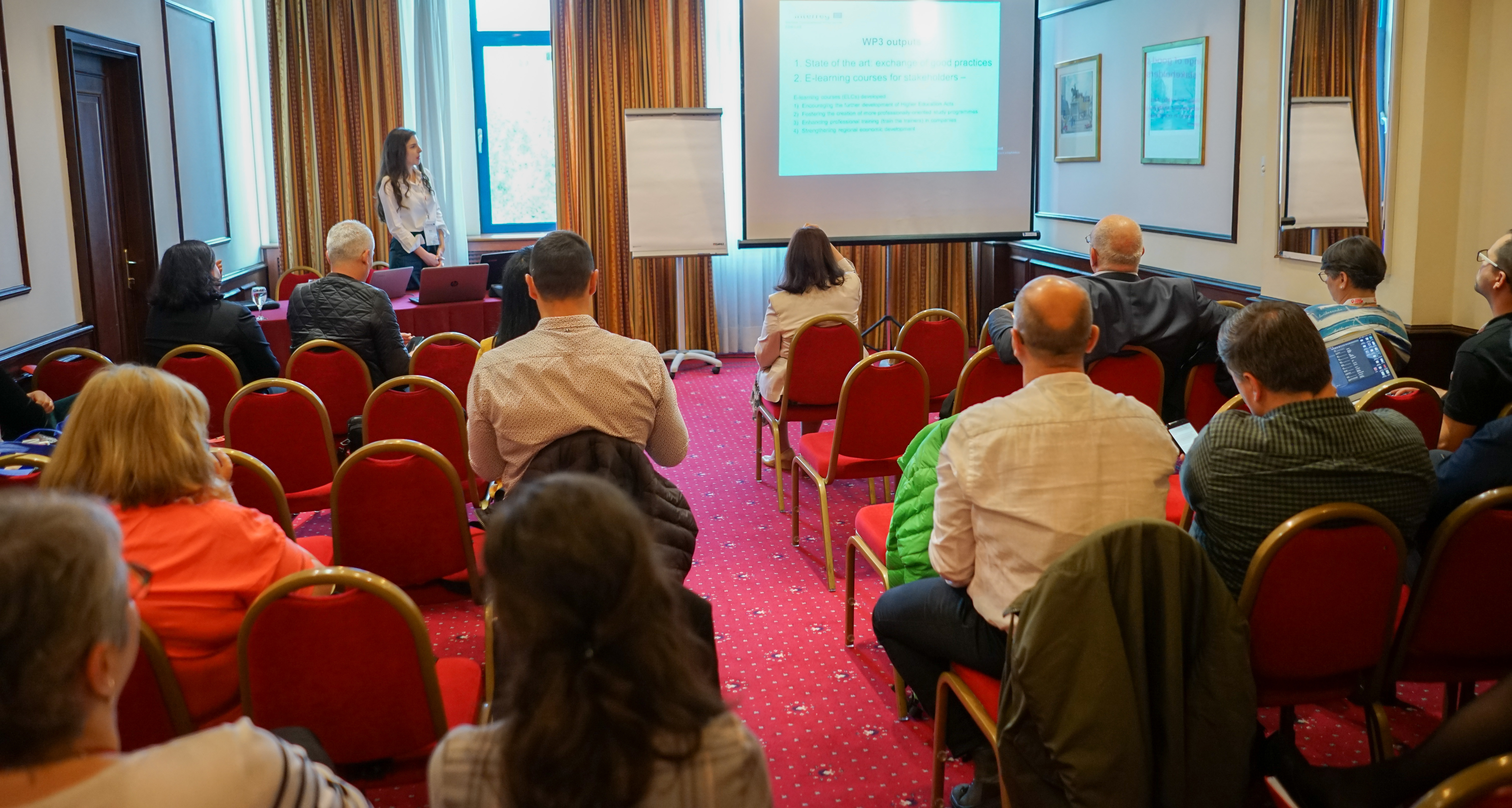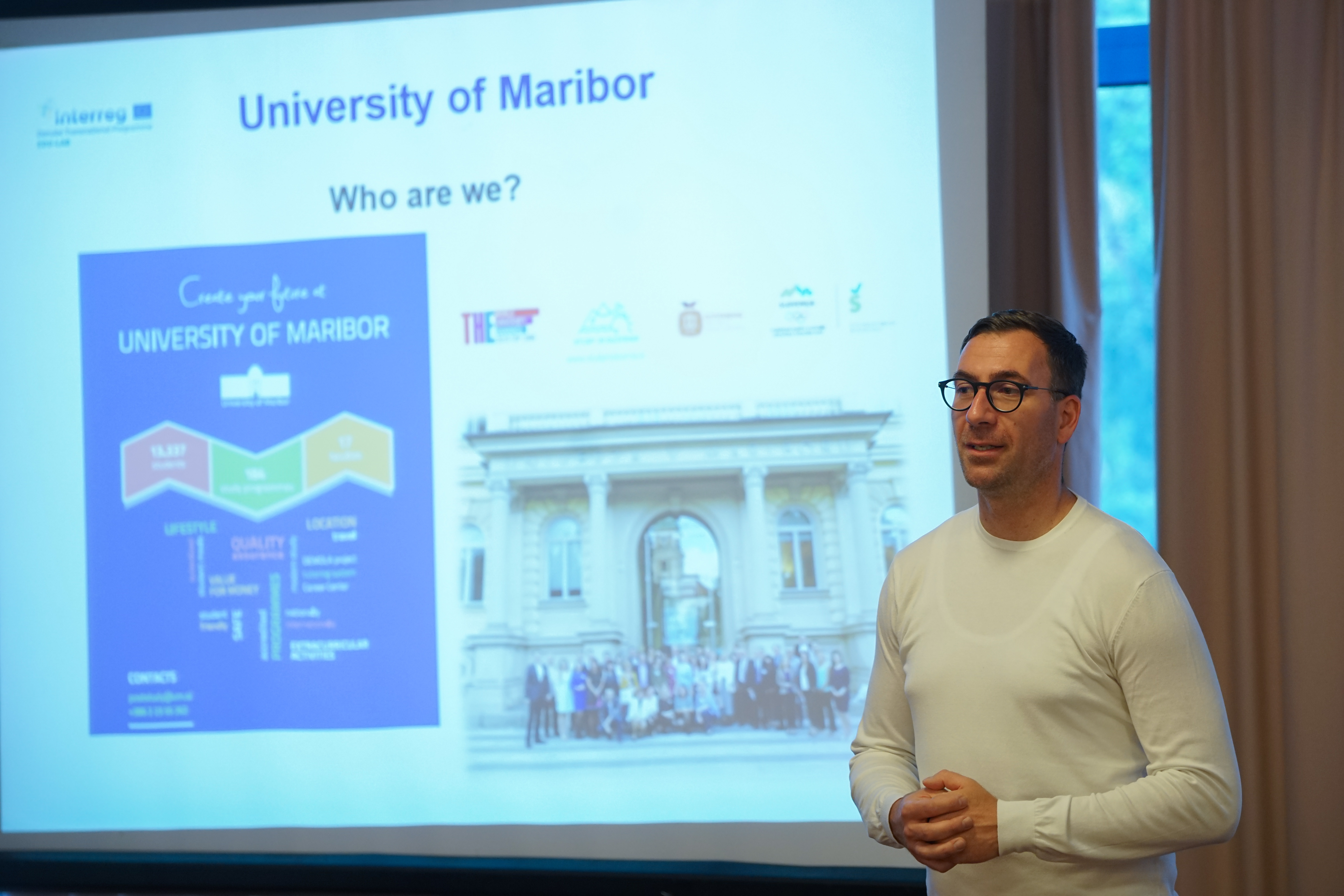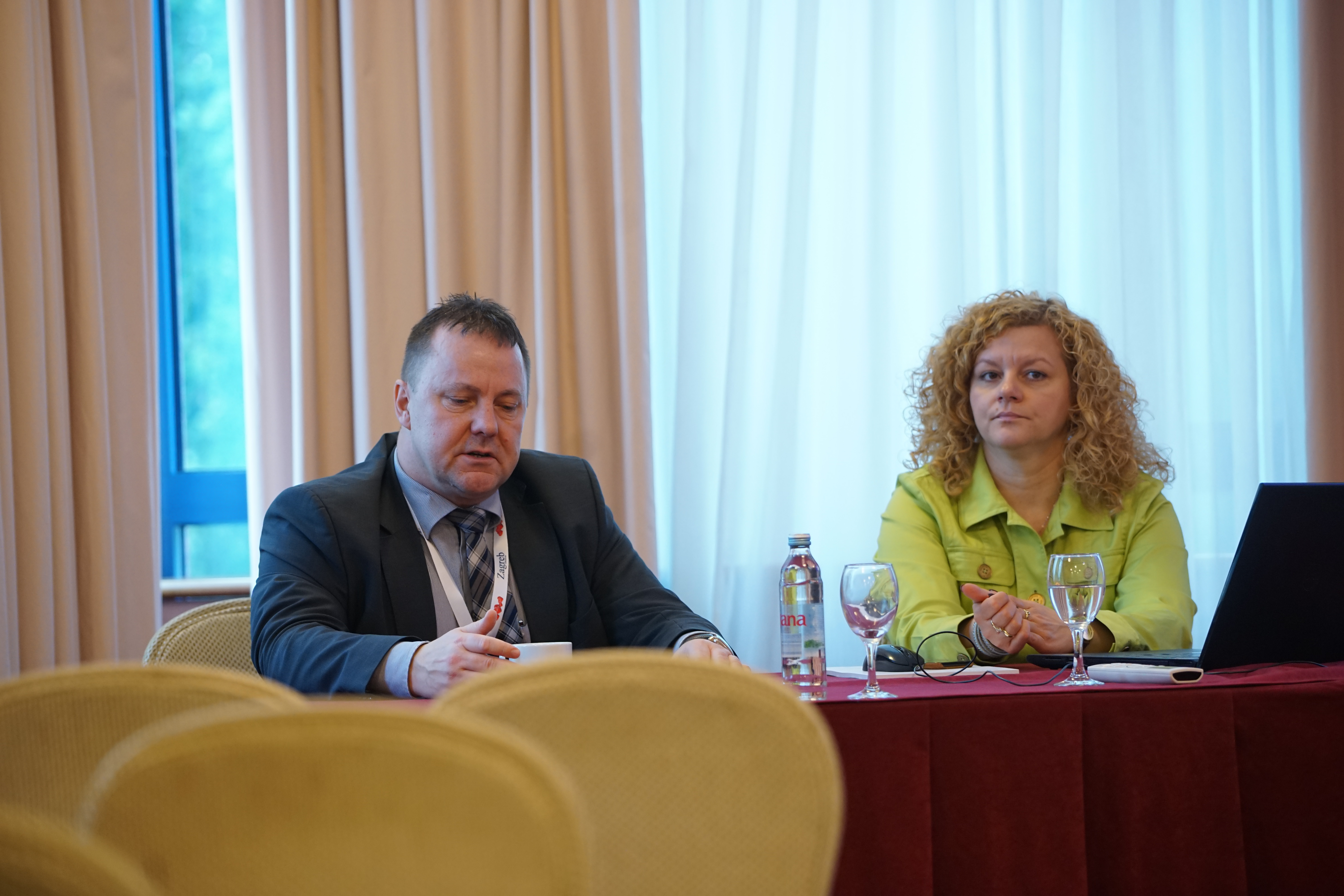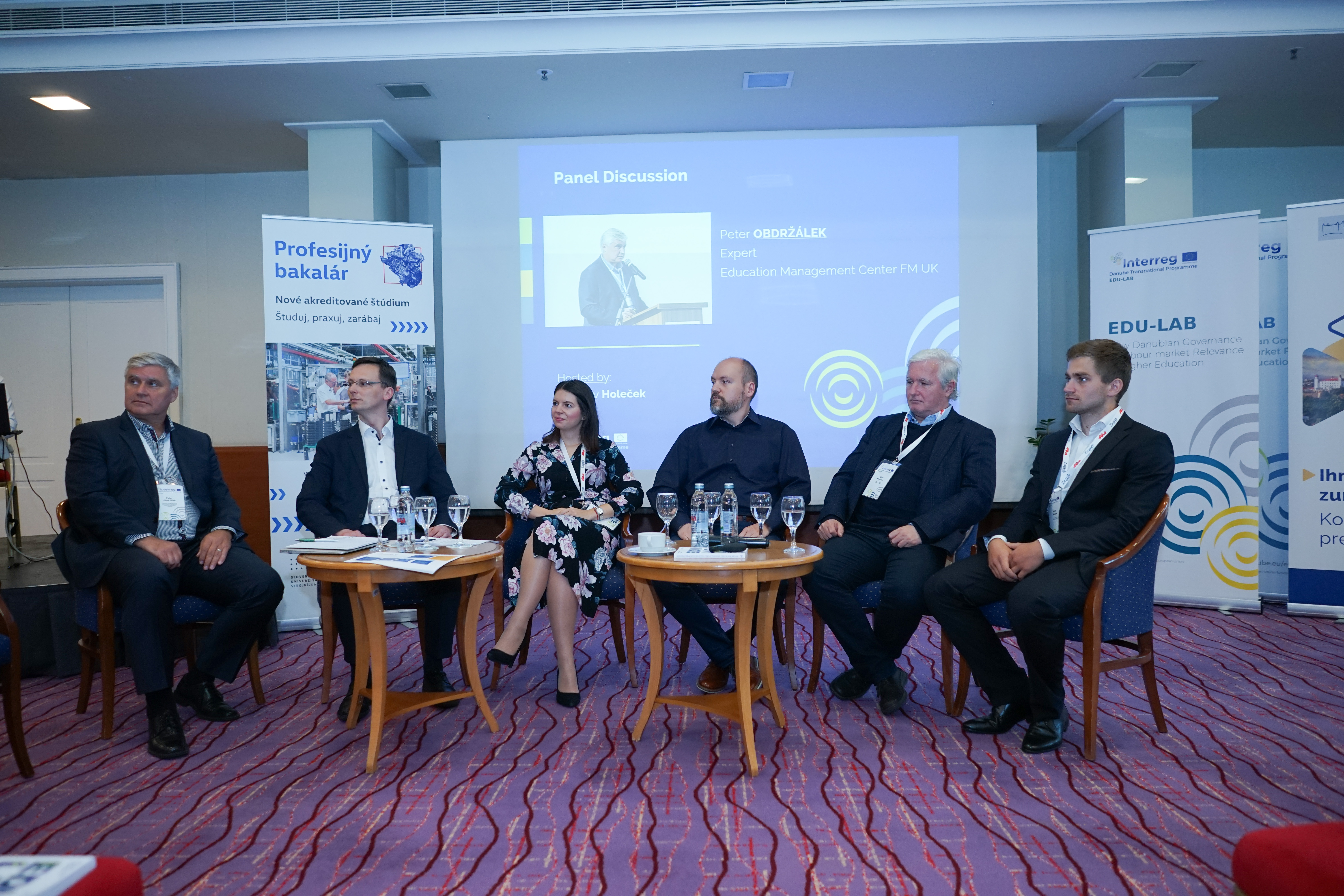EDU-LAB - Final Conference “Better Chances for Young People in the Danube Region” - Day 2
11-06-2019
The second day of the EDU-LAB Final Conference “Better Chances for Young People in the Danube Region” began with a short retrospective of the project by Dr. Ágnes Sebestyén, Project Director of EDU-LAB.
This day was centred around showcasing the project results of each work package through interactive workshops.
Click for Knowledge
Dr. Dijana Strbac (Institute Mihajlo Pupin), Dr. Anita Balla (John von Neumann University), Dr. Milena Krumova (Technical University – Sofia) and Zoran Markovic (Chamber of Commerce and Industry of Serbia) presented the e-learning tools developed for stakeholders belonging to higher education institutions, policy makers and businesses in the following topics. Participants of the workshop got a brief introduction of the four e-learning courses developed in the framework of EDU-LAB:
- Encouraging the further development of Higher Education Acts,
- Fostering the creation of more professionally oriented study programmes,
- Enhancing professional training (train the trainers) in companies,
- Strengthening regional economic development.

Change your mindset + Take a new partnership role
Apart from the creation of the New Danubian Governance Model, the University of Maribor has also developed a webpage  connecting students seeking a practical placement with companies in the framework of EDU-LAB. The aim is to enable students to gain specific skills and work experience in a relatively short time. The pilot started with companies mainly related to STEM-field, however placements will soon be extended to social sciences and humanities as well.
connecting students seeking a practical placement with companies in the framework of EDU-LAB. The aim is to enable students to gain specific skills and work experience in a relatively short time. The pilot started with companies mainly related to STEM-field, however placements will soon be extended to social sciences and humanities as well.
The title of the workshop held by Sebastijan Frumen, Robert Presker (University of Maribor) aimed to transfer the message that one can always find a way to introduce some long-needed changes with some willpower.
“A lot of people were sceptical in the beginning, but in the end, even in the most rigid systems, there is a chance to do something. This is why we chose the title “Change your mindset + Take a new partnership role” for this workshop.” Sebastijan Frumen explained.
Learning by doing
 In 2015, dual study programmes were introduced at the John von Neumann University in Kecskemét, Hungary to offer a closer combination of theory and practice. Dr. Lukács, an engineer specialised in automotive engineering, pointed out the problem of a lack of practice in education in certain fields and how dual study programmes can provide a solution to that issue. During the workshop, workshop leaders Dr. Pál Lukács and Eliza Angeli explained the model and held a Q&A session with participants.
In 2015, dual study programmes were introduced at the John von Neumann University in Kecskemét, Hungary to offer a closer combination of theory and practice. Dr. Lukács, an engineer specialised in automotive engineering, pointed out the problem of a lack of practice in education in certain fields and how dual study programmes can provide a solution to that issue. During the workshop, workshop leaders Dr. Pál Lukács and Eliza Angeli explained the model and held a Q&A session with participants.
Pilot activities: How Bachelor got professional?
The German-Slovak Chamber of Industry and Commerce, coordinator of EDU-LAB pilot activities organised a panel discussing the stance of the freshly introduced professional Bachelor programme, developed during EDU-LAB, and the future of dual studies in Slovakia.
All stakeholder groups that were involved in developing the study programmes were represented. The panel consisted of:
- Peter Obdržálek, Expert, Education Management Center FM UK
- Andrej Piovarči, Higher Education Institutions Division, Ministry of Education, Science, Research and Sport of SR
- Veronika Hanulová, Project Lead, Volkswagen Slovakia
- Pavol Bartík, non-academic guarantor of the first professionally oriented study programme, Volkswagen Slovakia
- Ľuboš Magdolen, academic guarantor of the first professionally oriented study programme
- Martin Nemček, student of the first professionally oriented study programme
All panel participants emphasised the win-win aspect of the model and its benefits. When asked about the balancing act of managing the workload of a “normal” study programme and working at a company at the same time, Martin Nemček, student of the first professionally oriented study programme`s answer was: "Dimonds grow under pressure.”
“We are in the process of establishing a scholarship system and the whole higher education system has to be rethought. I think there is some movement in the right direction and the EDU-LAB project contributed to this. This year we asked public universities to come up with their own plans for structural changes.” said Andrej Piovarči (Higher Education Institutions Division, Ministry of Education, Science, Research and Sport of the Slovak Republic) regarding future plans.

Finally, the event concluded with a capitalization session, where participants discussed topics of their interest with the open space method. Topics included sustainability, future cooperation possibilities and the implementation of dual study programmes in other countries.
